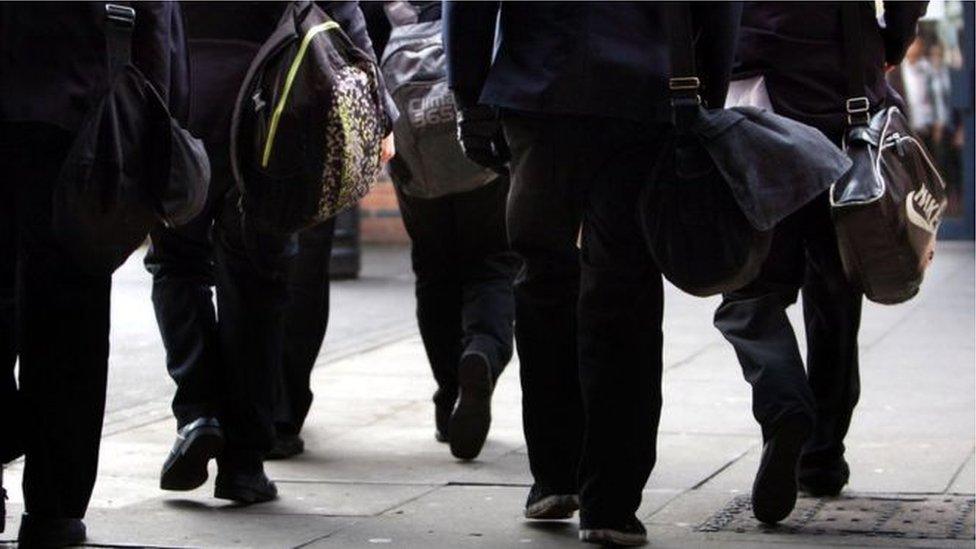A-levels: Queen's University seeks 'urgent clarity' over U-turn
- Published
- comments
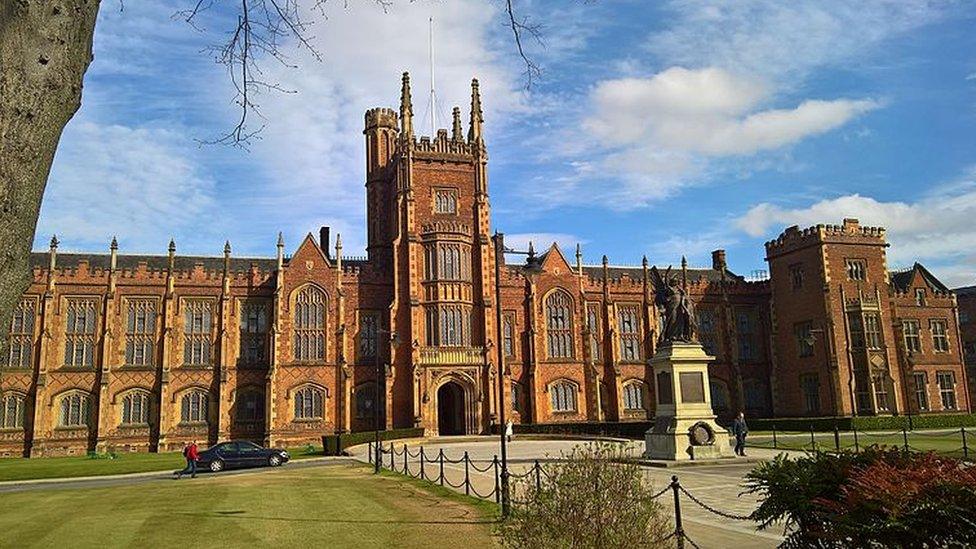
Queen's University Belfast said the university now urgently seeks clarity on a number of issues
Queen's University Belfast is seeking "clarity as a matter of urgency" after changes to A-level grades.
The university warned it may need between 500 to 1,000 extra places to admit all affected students, at a cost of about £4,000 per student.
Ulster University said it still had places available.
Similar decisions were taken in England and Wales.
Economy Minister Diane Dodds said the "consequences of the latest decisions on A levels must be faced up to".
"I support the universities in their assessment of the extra burdens and requirement that this will place upon them," Mrs Dodds said.
"Additional places and extra resources will be required and I will be working with executive colleagues to ensure this happens as soon possible."
GCSE results, due on Thursday, will also be awarded using grades calculated by teachers and schools.
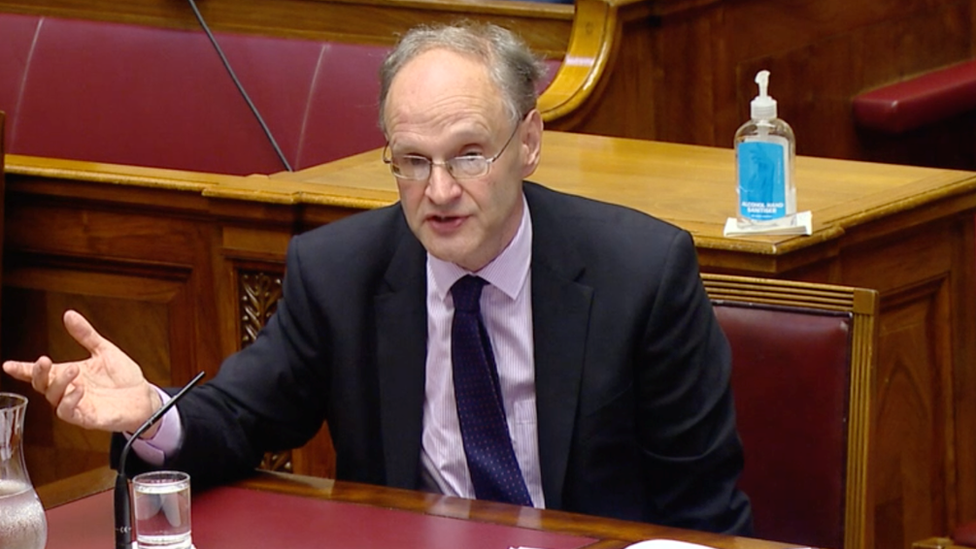
Education Minister Peter Weir performed a U-turn on A-level grades on Monday
In a statement following Education Minister Peter Weir's announcement, Queen's said that while it would "alleviate anxiety" for some pupils, "the university now urgently seeks clarity on a number of issues".
Queen's said it did not yet have access to the revised grades being awarded to students.
"Only once this is received will the university be able to confirm places for students who may now meet the conditions of their offer," it continued.

Analysis: Universities need to see revised grades
By Robbie Meredith, BBC News NI education correspondent
The cap on students that Queen's is allowed to take every year, which is quite similar to Ulster University, is between 3-3,500 new undergraduates from Northern Ireland every year.
That's a financial calculation done by the Department for the Economy.
It has a positive impact financially because it keeps tuition fees here lower than in England and Wales but it also means that there is huge competition for places at the two universities, particularly in some courses such as medicine, law, computer science and psychology.
For Queen's to say it may need between 500 and 1,000 extra places is quite a substantial rise in places, funded by the Department for the Economy, of about 15-25%.
It sounds that especially at Queen's, places are under pressure and they want more.
But there is an administrative problem too.
A-level students who got their results last week haven't got their revised grades yet and that means neither have the universities. They need to see those grades to see where the pressure points are.
They may have to ask students to defer a year and tell them that they will guarantee a place for 2021, but I don't think that's a position that anybody wants to be in.

The Northern Ireland Executive controls the number of undergraduate places available at Queen's and Ulster University for students from Northern Ireland.
The Department for the Economy then sets a maximum aggregate student numbers (MaSN) cap at both universities based on financial calculations.
"If substantial numbers of students are given improved grades then urgent consideration must be given to how their university places are funded as this is likely to significantly exceed the MaSN cap that is set by the Department for the Economy," Queen's said.
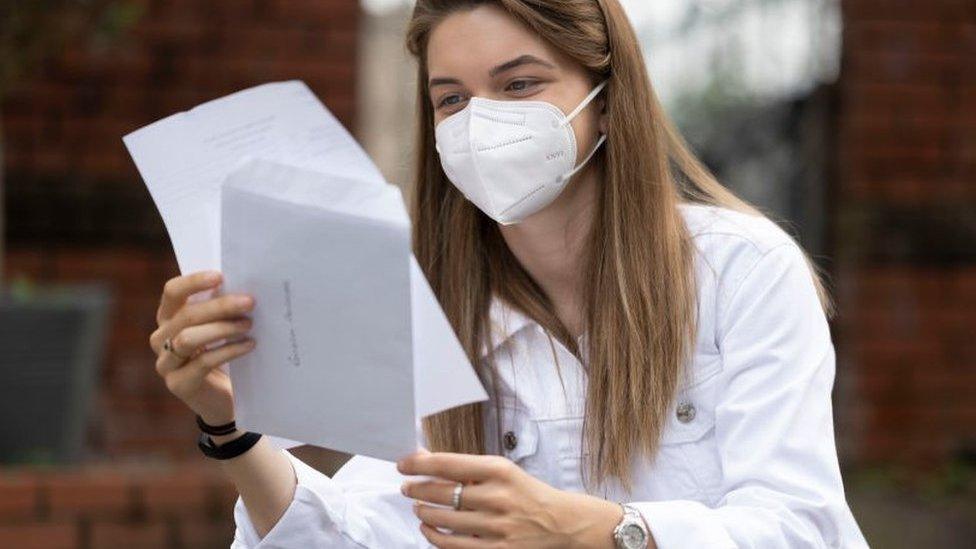
A-Level students recieved their results last Thursday
"The university has limited flexibility with quota-controlled courses such as medicine and dentistry where restrictions on numbers are externally applied, although as many as possible will be accommodated.
"It is not yet clear if the quota for these courses will be adjusted.
"Any applicants to quota-controlled courses who meet the conditions of their offer but can not be allocated a place for the forthcoming academic year will be provided an unconditional offer for the 2021/22 academic year."
Queen's also said it had "genuine capacity restrictions in terms of teaching space, teaching staff and accommodation that have to be taken in to account.
"These issues are particularly complex this year due to the need to preserve social distancing and keep our staff and students safe.
"It is therefore imperative that the university receives clarity on the provision of revised results and, the support that will be provided by government as soon as possible.
"The new academic year begins on 21 September so the university needs this clarity as a matter of urgency so that it can plan effectively for the start of semester."
Prof Stuart Elborn, the pro-vice chancellor at Queen's School of Medicine, Dentistry and Biomedical Sciences, said that there could be an additional 500-1,000 places needed at the university, at a cost of about £4,000 per student.
"In the areas of high demand, such as computer science, medicine and the healthcare professions, we are already stretched beyond our limits and to be able to deliver in those high demand areas we will need extra support and will work with the Department for the Economy and the Northern Ireland Executive to deliver this for this generation of students who have faced a very difficult time to get there," Prof Elborn told the BBC's Good Morning Ulster programme.
In July, Queen's and Ulster University offered guaranteed places to about 2,500 Northern Ireland students before they got their A-level results.
Speaking on Tuesday, Ulster University's interim vice-chancellor said that the university had been awarded extra places for students.
Prof Paul Bartholemew said: "We do still have availability on a range of courses so potential students can ring us and we will likely be able to help them.
"But there is no doubt that there are challenges within the sector. There are caps that we have to work within but currently we've been OK with our admission processes and we've still got spaces available.
"We've had to take into account those changes from yesterday but we can still help people."
- Published17 August 2020
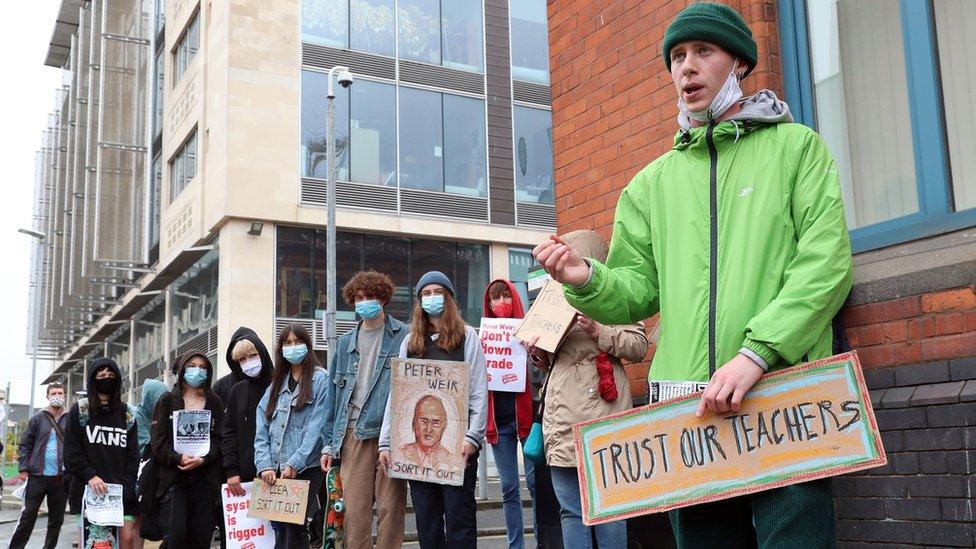
- Published17 August 2020
